Success stories: How companies grew through automation
Automation has revolutionized a variety of industries over the past few decades. It has enabled companies to increase efficiency, reduce costs and significantly improve product quality. In this blog post, we highlight some inspiring success stories of companies that have grown significantly through the use of automation technologies.
Automation has revolutionized a variety of industries over the past few decades. It has enabled companies to increase efficiency, reduce costs and significantly improve product quality. In this blog post, we highlight some inspiring success stories of companies that have grown significantly through the use of automation technologies.
1. Amazon: The giant of logistics and e-commerce
Amazon is a prime example of the successful use of automation. The company has equipped its logistics centers with thousands of robots that help store, sort and ship products efficiently. These robots, developed by Amazon subsidiary Kiva Systems, have significantly reduced processing time and increased accuracy.
By automating its warehouses, Amazon can process and ship orders faster. The robots work around the clock, without breaks, reducing operating costs and increasing productivity. Automation also minimizes human errors, which leads to higher customer satisfaction.
Results:
- Reduction of storage costs by up to 20%.
- Increasing delivery speed, resulting in better customer satisfaction.
- Enabling Amazon Prime, a fast delivery subscription service with millions of subscribers worldwide.
Amazon plans to further expand automation to become even more efficient. Future innovations could include the use of drones for delivery, which would further reduce delivery times.
2. Siemens: Automation in manufacturing
Siemens, a global technology company, has revolutionized its manufacturing facilities by using Industry 4.0 technologies. At the “Amberg Electronics Plant”, Siemens has implemented almost completely automated production, in which machines and computers take on around 75% of the added value.
By connecting machines and using data analytics, Siemens can monitor and optimize production processes in real time. This leads to greater efficiency and a drastic reduction in production errors.
Results:
- Increasing production quality to 99.99885% defect-free products.
- Reduction of production costs through less scrap and rework.
- Flexible manufacturing processes that enable rapid adaptation to market requirements.
Siemens plans to further develop these technologies and expand them to other production sites. The future of manufacturing at Siemens will be even more influenced by artificial intelligence and machine learning.
3. Toyota: pioneer of automobile production
Toyota has revolutionized automobile production through the concept of lean production and the extensive automation of their production lines. Robots perform a variety of tasks, from welding and painting to assembling complex components.
By implementing automated systems, Toyota can make production more efficient and reduce lead times. Automation also allows Toyota to respond more quickly to changes in demand and bring new models to market more quickly.
Results:
- Significant reduction in production costs.
- Shortening production cycles, resulting in faster time to market for new models.
- Improving product quality, which has brought Toyota high customer satisfaction and loyalty worldwide.
Toyota continually invests in the research and development of new automation technologies. Future innovations could include the use of cobots (collaborative robots), which are even more flexible and safer when working with human workers.
4. Zara: Fast fashion through intelligent automation
Fashion retailer Zara has achieved unprecedented flexibility and speed through automation in logistics and production. The integration of automated storage and ordering systems allows Zara to quickly identify trends and bring new collections to stores within weeks.
The ability to respond quickly to fashion trends gives Zara a significant competitive advantage. Automated systems help monitor inventory in real-time and manage reorders efficiently, resulting in reduced inventory costs and increased sales.
Results:
- Shortening delivery times from design to sale to around two weeks.
- Increasing inventory turnover, resulting in lower inventory levels and higher margins.
- Strengthening the market position as a leading company in the fast fashion sector.
Zara plans to further expand automation and use technologies such as RFID (Radio-Frequency Identification) to track inventory even more accurately and increase efficiency in the supply chain.
5. UPS: Automation in parcel logistics
UPS has invested heavily in automation across its sortation and delivery infrastructure. Automated sorting systems and route optimization algorithms have significantly improved the efficiency of parcel delivery.
By using machine learning and artificial intelligence, UPS can calculate the optimal route for each delivery, reducing fuel consumption and shortening delivery times. Automated sorting systems ensure that packages are processed quickly and precisely.
Results:
- Reduction of operating costs through more efficient sorting and delivery processes.
- Improving delivery accuracy and speed, increasing customer satisfaction.
- More sustainable operations by reducing fuel consumption and emissions.
UPS continually invests in the further development of its automation technologies. Future innovations could include the use of drones and autonomous vehicles to further increase the efficiency of last-mile delivery.
These success stories show how automation has helped companies across various industries achieve significant growth. By implementing advanced technologies, these companies were able to not only improve their efficiency and product quality, but also strengthen their market position and respond more innovatively to customer needs. Automation is therefore a key to competitiveness and securing the future in the modern economy.
Companies that recognize and exploit the opportunities presented by automation are better equipped to meet the challenges of the global market and achieve sustainable success. The continuous development and integration of new technologies will continue to play a central role in the future in order to meet growing requirements and continue to drive innovation.
Do you want to automate your business and reap the benefits that automation can provide? Take a look around our shop and discover a large selection of high-quality automation technology.




